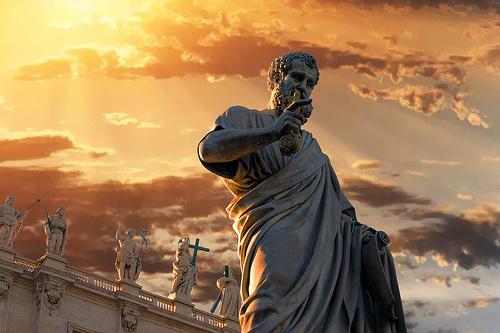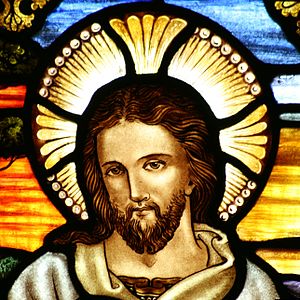by Moe | Jul 2, 2013 | Apocalypse, Gnosis
 (Updated 7/2/2013) – As the great gnostic Jesus said in the Gospel of Thomas; “Know what is in front of your face, and what is hidden from you will be disclosed to you. For there is nothing hidden that will not be revealed. And there is nothing buried that will not be raised.”
(Updated 7/2/2013) – As the great gnostic Jesus said in the Gospel of Thomas; “Know what is in front of your face, and what is hidden from you will be disclosed to you. For there is nothing hidden that will not be revealed. And there is nothing buried that will not be raised.”
The bible is filled with hidden esoteric Gnostic teachings and allegories on Gnosticism. However, to the uninitiated, these secret mysteries remain hidden and they are not revealed to those that simply do not have a pure heart or motives in their quest for truth.
This ancient policy of light and truth is as old as we conscious humans are. It is just the natural order of nature in which we humans must adhere to these natural laws which govern our bodies (DNA), minds and souls.
Many people are unaware that some of the most famous early Gnostics had actually helped form the religion of Christianity and also found the Catholic Church. Gnostics like Simon the Sorcerer or Simon the Magician, in Latin Simon Magus, who is more commonly known today as Saint Peter. Irenaeus had said he was one of the founders of gnosticism and according to Bible scholars such as Barbara Thiering and Hans Jonas, Simon Magus was also one of the founders of the Gnostic Church. (more…)
Moe is the founder of GnosticWarrior.com. He is a father, husband, author, martial arts black belt, and an expert in Gnosticism, the occult, and esotericism.
by | Apr 10, 2013 | Gnosis, Mystical Christianity
“The Christ within you, the hope of glory.” – St Paul

Stained glass at St John the Baptist’s Anglican Church http://www.stjohnsashfield.org.au, Ashfield, New South Wales. Illustrates Jesus’ description of himself “I am the Good Shepherd” (from the Gospel of John, chapter 10, verse 11). This version of the image shows the detail of his face. The memorial window is also captioned: “To the Glory of God and in Loving Memory of William Wright. Died 6th November, 1932. Aged 70 Yrs.” (Photo credit: Wikipedia)
Gnostic Christianity may seem like a radically different form of Gnosticism, one that surrounds the figure of Jesus Christ and his teachings. But underneath this theological dressing are not only specific keynotes to other Gnostic movements, but the reality that Jesus Christ is much more (and really) less than a spiritual icon: he is an intimate and lost part of each one of us.
In their texts, Christian Gnostics were varied in speculating the nature of Jesus Christ, from presenting him as a shape-shifting god (the Secret Book of John), to describing him as very human and very in the flesh (the Apocalypse of James). But the one commonality is that Jesus is always seen as a hierophant of mysteries to those seeking spiritual awakening; he is the one who stimulates Gnosis within the heart, sparks the slumbering Divine Spark. But Jesus is always presented very subjectively, almost as if the author is writing allegorical fiction or satisfying a specific worldview with modifications.
This style of showcasing a luminary in an almost mythical manner, as well as a teacher who imparts sacred information, is found virtually in all other Gnostic movements beyond Gnostic Christianity. Take for example Hermes Trismegistus, who takes the place of Jesus Christ in the Hermetic tradition. Like Jesus, his history is almost an afterthought, and he becomes more of an archetypal figure of the speculative imagination of the different Hermetic authors. (more…)
by Moe | Sep 3, 2011 | Code of the Illuminati
p. 469
Seventh Part of the Code of the Illuminees.—Class of the Mysteries.
However accurately the Sect may have ascertained the progress of its adepts in the preparatory degrees, still Weishaupt seems to fear that some may be startled when they come to be acquainted with the ultimate views of Illuminism. He wishes therefore to lead them to his darkest plots by gradual shades. Hence the division of lesser and greater mysteries, and the subdivision into degrees. The first degree into which the adepts are initiated in this class is that of Epopt; but these new dignitaries are only known by that title to the inferior class; the higher degrees call them Priests. 1
Let not the reader take alarm at the denomination of lesser mysteries, as if they were of no consequence; for he will gradually, as he ascends, discover their dark designs and dealings. But before the adept is allowed to proceed, he must collect every thing that his mind, his memory, or all his former lessons can afford, of anti-religious and anti-social principles, to enable him to give written answers to the following questions:
“I. Do you think the present state of nations corresponds with the object for which man was placed upon earth? For example, do governments, civil associations, or religion, attain the ends for which they were designed? Do the sciences to which men apply furnish them with real lights; are they conducive (as they ought to be) to real happiness? Are they not, on the contrary, the offspring of numberless wants, and of the unnatural state in which men live? Are they not the crude inventions of crazy brains, or of geniuses laboriously subtle?”
“II. What civil associations and what sciences do you think tend or do not tend to the grand object? Did there not formerly exist an order of things more simple? What sort of an idea can you form of that ancient state of the world?”
“III. Now that we have passed through all those nullities (or through all those useless and vain forms of our civil constitutions), do you think that it would be possible to return back to the original and noble simplicity of our forefathers? Supposing we had returned to it, would not our past misfortunes render that state more durable? Would not all mankind be in a similar state
p. 470
with an individual who, having enjoyed the sweets of innocence during his childhood, and fallen a prey to error and his passions during his youth, at length, instructed by the risks he has run, and by experience, endeavours to return to that innocence and purity which rendered his childhood so happy?”
“IV. What means were best to be employed for restoring mankind to that happy state? Should it be by public measures, by violent revolutions, or by any means that should ensure success?”
“V. Does not the Christian Religion in all its purity afford some indications, does it not hint at some state or happiness similar to this? Does it not even prepare it?”
“VI. Is this holy and simple religion really what different Sects profess it to be at this present day, or is it more perfect?”
“VII. Can this more perfect Christianity be known or taught? Could the world (such as it now is) support a stronger degree of light? Do you not think that, before the numberless obstacles could be removed, it would be proper to preach to mankind a religion more perfect, a philosophy more elevated, and the art of each one’s governing himself according to his greatest advantage?”
“VIII. Would not our moral and political views lead men to oppose this blessing? From our political and moral views then, or from an ill-judged interest, or even from deep-rooted prejudices, these obstacles originate. If men, therefore, oppose the renovation of human happiness, is it not because, slaves to ancient forms, they reject and reprobate every thing which is not to be found in those forms, though it should be the most natural, the grandest, and most noble of all possible things? Does not personal interest, alas! at present predominate over the general interest of mankind?”
Moe is the founder of GnosticWarrior.com. He is a father, husband, author, martial arts black belt, and an expert in Gnosticism, the occult, and esotericism.
 (Updated 7/2/2013) – As the great gnostic Jesus said in the Gospel of Thomas; “Know what is in front of your face, and what is hidden from you will be disclosed to you. For there is nothing hidden that will not be revealed. And there is nothing buried that will not be raised.”
(Updated 7/2/2013) – As the great gnostic Jesus said in the Gospel of Thomas; “Know what is in front of your face, and what is hidden from you will be disclosed to you. For there is nothing hidden that will not be revealed. And there is nothing buried that will not be raised.”

